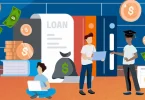Managing student loans can feel overwhelming, especially when you’re juggling work, bills, and daily life. But here’s the good news: it doesn’t have to be stressful. With some simple student loan management tips, you can take control of your finances, reduce debt faster, and prevent your loans from becoming a constant source of anxiety.
Below, we’ll break down practical strategies anyone can use, whether you’re just starting your repayment journey or already in the middle of it.
1. Understand Your Loans Inside and Out

The first step to managing student loans effectively is knowing exactly what you owe. Many borrowers make the mistake of thinking, “I’ll just pay what I can each month,” without understanding their loan details. Take some time to gather all your loan documents or log into your online loan accounts.
Pay attention to:
- Loan type – Federal or private loans have different rules, protections, and interest rates.
- Interest rates – High-interest loans grow faster, so knowing the rate helps you prioritize payments.
- Total balance – Track how much you owe on each loan individually.
- Repayment terms – Some loans may allow flexible repayment or deferment options.
Tip: Create a simple spreadsheet with each loan listed along with its details. This visual overview makes it easier to plan your repayment strategy.
2. Create a Realistic Budget
Budgeting is the backbone of student loan management. Without a clear budget, it’s easy to overspend and fall behind on payments. Start by listing:
- Your total monthly income
- Essential expenses (rent, utilities, groceries, transportation)
- Optional spending (entertainment, dining out, subscriptions)
After deducting your expenses from your income, see how much is left for loan payments. Even if you can only pay a little above the minimum each month, consistency is key.
Example: If your monthly loan payment is $250 and you can afford an extra $50, that small addition reduces your principal faster and saves on interest over time.
3. Prioritize Loans Strategically
If you have multiple loans, deciding which to pay off first can make a big difference. There are two common approaches:
- Debt avalanche method: Focus on loans with the highest interest rate first. This reduces the total interest paid over time.
- Debt snowball method: Focus on loans with the smallest balance first. Paying off loans quickly provides a psychological boost and keeps motivation high.
Tip: Combine methods if needed—start with a small balance for motivation, then tackle higher-interest loans to save money.
4. Automate Your Payments
Missing a payment can hurt your credit score and increase stress. Setting up automatic payments ensures you never miss a due date.
- Many lenders offer interest rate discounts (often 0.25% off) when you enroll in autopay.
- Automation makes repayment effortless—you don’t have to remember each due date.
Tip: Even with autopay, keep an eye on your accounts monthly to ensure there are no errors.
5. Consider Refinancing or Consolidation
If juggling multiple loans feels overwhelming, refinancing or consolidating might simplify your payments.
- Refinancing can lower your interest rate by combining several loans into one.
- Consolidation combines federal loans into a single payment while keeping federal protections.
Caution: Refinancing federal loans into private loans can remove protections like income-driven repayment plans or loan forgiveness options. Always weigh the pros and cons before making a decision.
6. Explore Repayment Plans
Federal student loans offer various repayment plans tailored to different financial situations. For example:
- Standard repayment plan – Fixed payments over 10 years.
- Graduated repayment plan – Starts lower and increases every two years.
- Income-driven repayment plans – Payments are based on your income and family size.
Tip: If your current payment feels unmanageable, switching to an income-driven plan can reduce monthly stress while keeping you on track.
7. Make Extra Payments Whenever Possible
Whenever you receive extra money—like a bonus, tax refund, or gift—consider putting it toward your student loans. Even small additional payments can significantly reduce your principal over time.
Example: Paying an extra $100 per month on a $20,000 loan at 5% interest could save you thousands in interest over the life of the loan.
Tip: Always specify that extra payments go toward the principal, not future interest, to maximize impact.
You may also like to read this:
Best Ways To Manage Student Loans And Repay Faster In 2025
The Ultimate Guide on How To Organize Student Loan Payments
How To Pay Off Loans Faster: Easy Steps To Become Debt-Free
Manage Multiple Student Loans Easily: Complete Guide
8. Communicate With Your Lender
Life can be unpredictable. If you ever face financial difficulties, don’t ignore your loans. Contact your lender—they can offer:
- Deferment – Temporarily pause payments without penalty (interest may continue to accrue).
- Forbearance – Temporarily reduce or pause payments in specific hardship cases.
- Modified repayment plans – Adjust your payment schedule to match your financial situation.
Tip: Open communication can prevent defaults, late fees, and stress.
9. Track Your Progress
Keeping an eye on your progress is motivating. Use:
- Spreadsheets to track payments and remaining balances
- Apps designed for student loan management
- Visual charts to celebrate milestones
Tip: Celebrating small wins—like paying off a loan or reaching 25% repayment—can keep you motivated for the long journey.
10. Stay Informed About Student Loan Policies
Student loan policies can change over time, especially for federal loans. Keep yourself updated on:
- Forgiveness programs – Certain careers (like teaching, healthcare, or public service) may qualify for partial or full loan forgiveness.
- Interest rate changes – Occasionally, federal interest rates are adjusted, which can affect your payments.
- Legislation updates – New policies may provide temporary relief or new repayment options.
Tip: Sign up for updates from your loan servicer or check government websites regularly to ensure you don’t miss out on opportunities.
11. Avoid Common Mistakes

Many borrowers unknowingly make errors that prolong repayment or increase costs. Common mistakes include:
- Paying only the minimum – This prolongs repayment and increases interest costs.
- Ignoring small loans – Neglecting smaller loans can accumulate late fees.
- Missing payments – Even one missed payment can negatively affect your credit score.
- Refinancing without research – Not understanding the consequences of refinancing federal loans into private loans can cost benefits like forgiveness or income-based repayment.
Tip: Regularly review your loan statements and payment history to catch mistakes early.
12. Use Technology to Your Advantage
Digital tools make student loan management easier than ever:
- Budgeting apps like Mint, YNAB, or PocketGuard help track spending and allocate money for loans.
- Loan tracking apps like Student Loan Hero or SoFi allow you to see all loans in one place, monitor progress, and even simulate payoff scenarios.
- Reminders and alerts from your bank or lender ensure no payment is missed.
Tip: Automating reminders alongside autopay creates a double layer of security against late payments.
13. Build an Emergency Fund
Unexpected expenses—like medical bills, car repairs, or temporary job loss—can make it difficult to stay on track with student loans. Building an emergency fund of 3–6 months of living expenses ensures that your loan payments stay consistent even during unforeseen financial challenges.
Tip: Start small if needed, even $20–$50 per week can grow into a meaningful safety net over time.
14. Seek Professional Guidance if Needed
If your student loans feel overwhelming, consider consulting a financial advisor who specializes in student debt. They can help you:
- Choose the most effective repayment strategy
- Understand refinancing and consolidation options
- Maximize benefits from forgiveness programs
- Balance loan repayment with other financial goals like saving for retirement or buying a home
Tip: Many advisors offer free or low-cost initial consultations, which can be valuable for creating a clear repayment roadmap.
Final Thoughts
Student loans don’t have to control your life. By applying these simple student loan management tips—from understanding your loans, budgeting carefully, and making extra payments, to leveraging technology, staying informed, and seeking professional guidance—you can take control of your debt.
The key is consistency. Even small, intentional actions each month—like paying a little extra toward principal, reviewing your budget, or tracking your progress—can save thousands in interest and shorten your repayment period.
Remember: managing student loans is not just about paying off debt; it’s about building financial discipline, protecting your credit, and creating the freedom to pursue your long-term goals without the burden of stress.
FAQs
Q1: What is the best way to manage multiple student loans?
A: Start by understanding each loan’s interest rate, balance, and repayment terms. Use a strategy like the debt avalanche (pay high-interest loans first) or the debt snowball (pay small balances first) to reduce debt efficiently. Consolidation or refinancing can also simplify payments.
Q2: Should I pay extra on my student loans?
A: Yes, making extra payments toward the principal can reduce the total interest you pay and shorten your repayment period. Even small additional payments can have a significant long-term impact.
Q3: Can I change my repayment plan if I’m struggling?
A: Absolutely. Federal loans offer various options, including income-driven repayment plans, which adjust payments based on your income and family size. Contact your loan servicer to explore alternative plans.
Q4: What happens if I miss a student loan payment?
A: Missing payments can negatively affect your credit score and may incur late fees. If you’re unable to pay, contact your lender immediately—they may offer deferment, forbearance, or a modified repayment plan.
Q5: Is refinancing or consolidating student loans a good idea?
A: It can simplify payments and potentially lower interest rates. However, refinancing federal loans into private loans may remove protections like forgiveness programs or income-driven repayment options. Evaluate your situation carefully before proceeding.




